
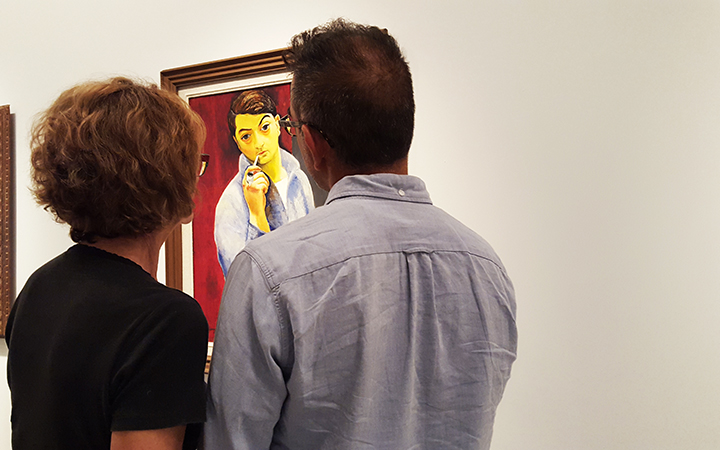
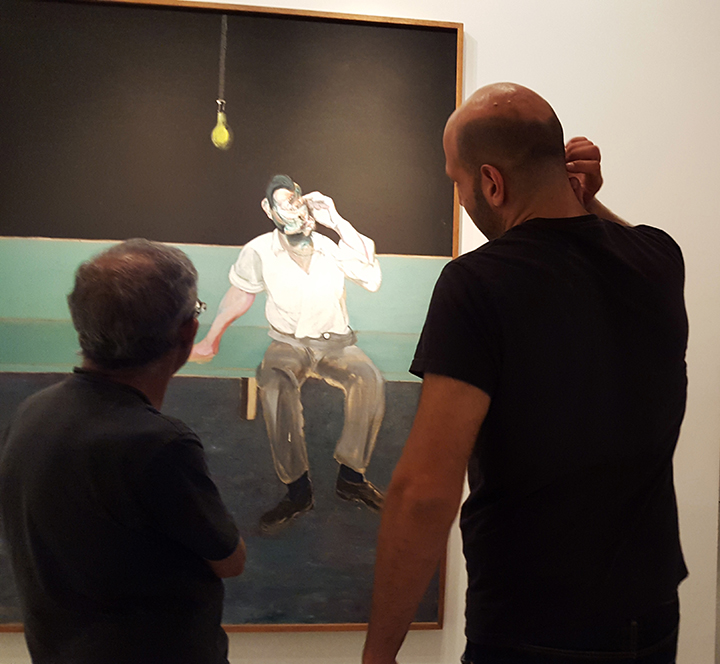
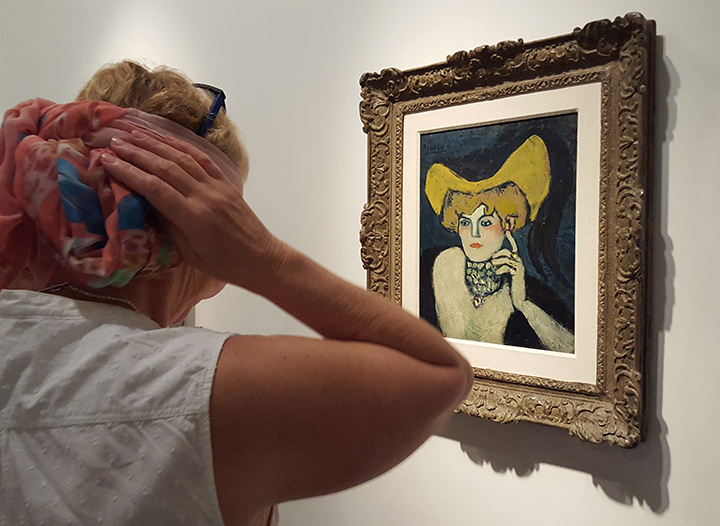
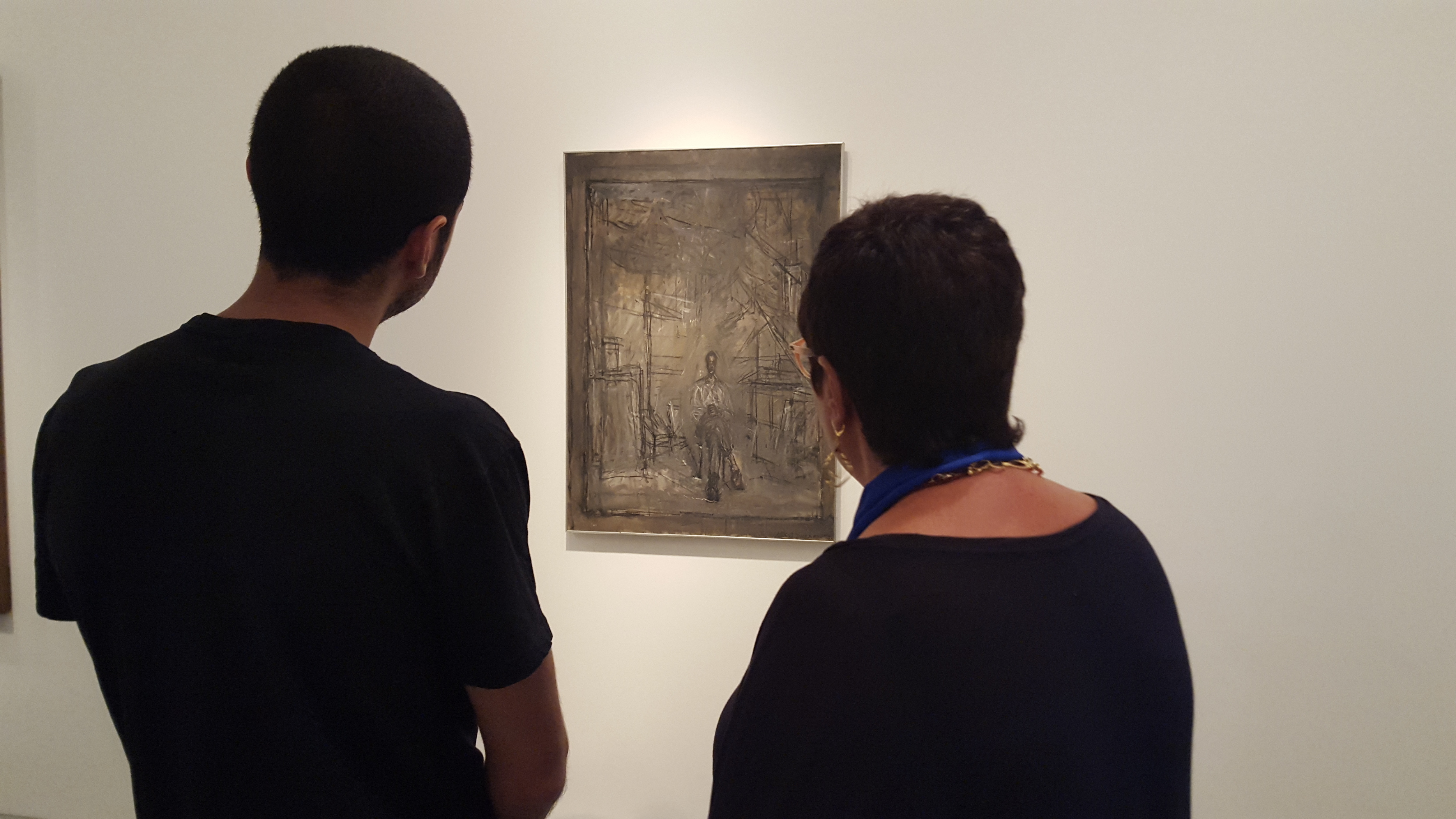

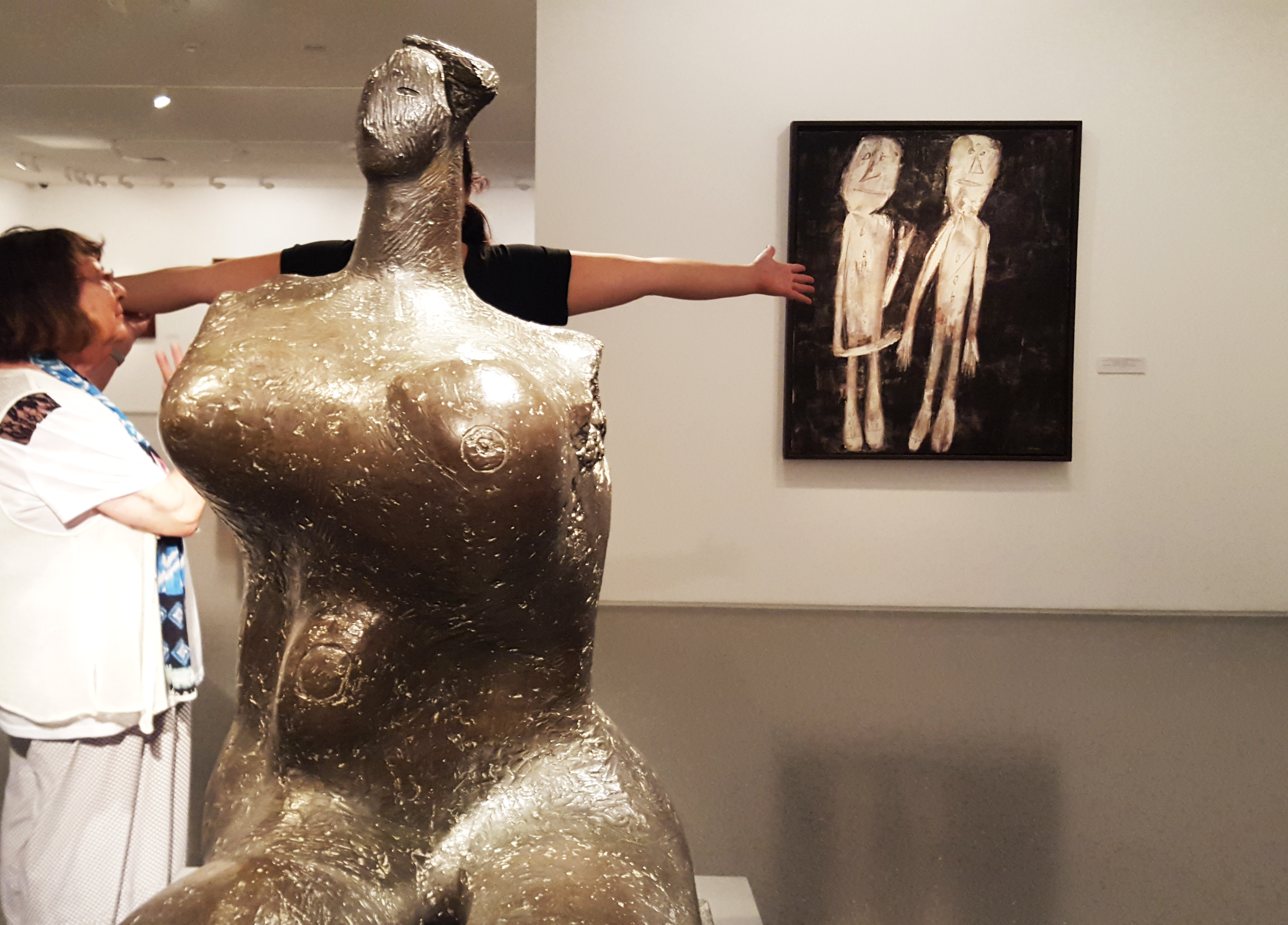

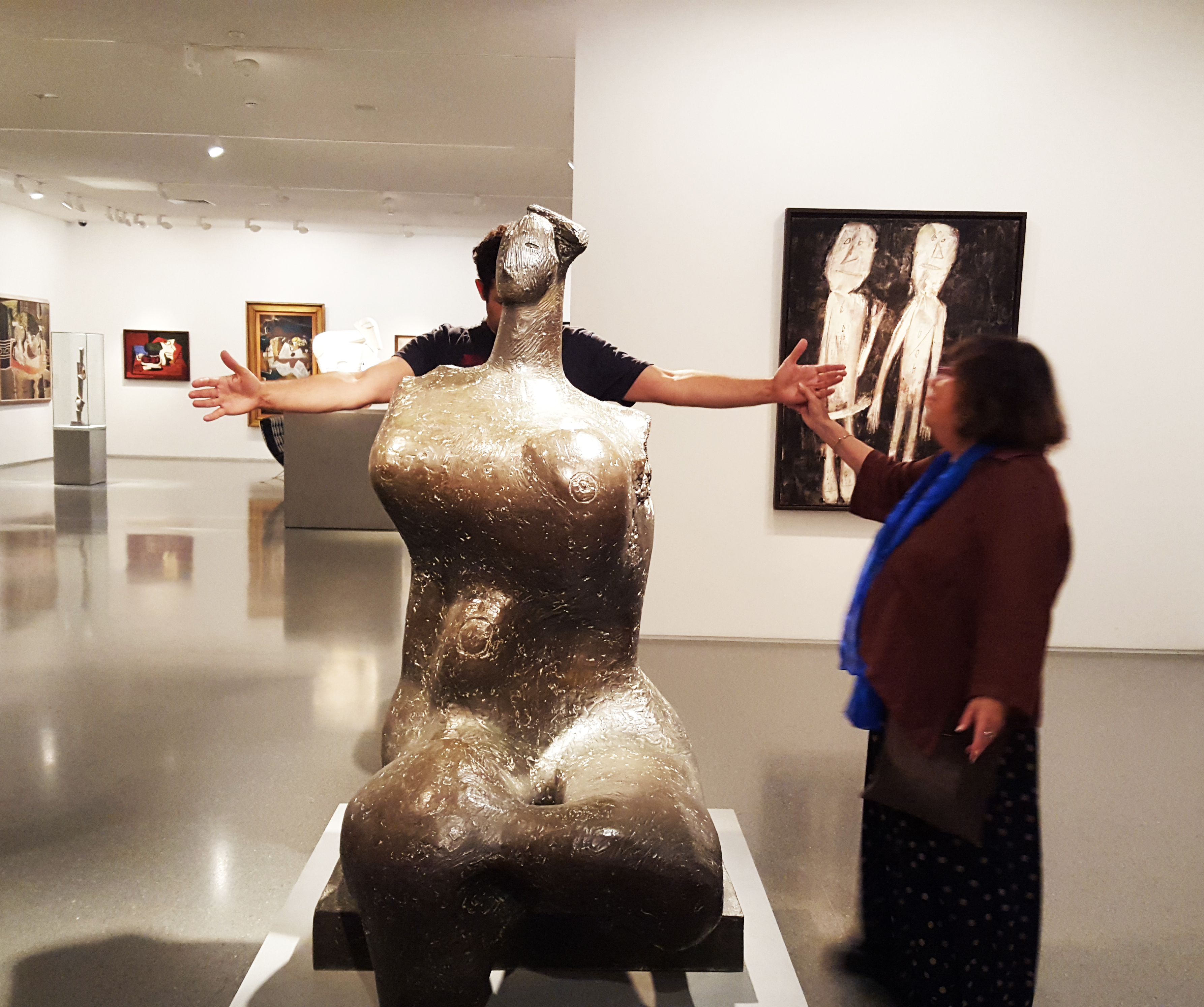
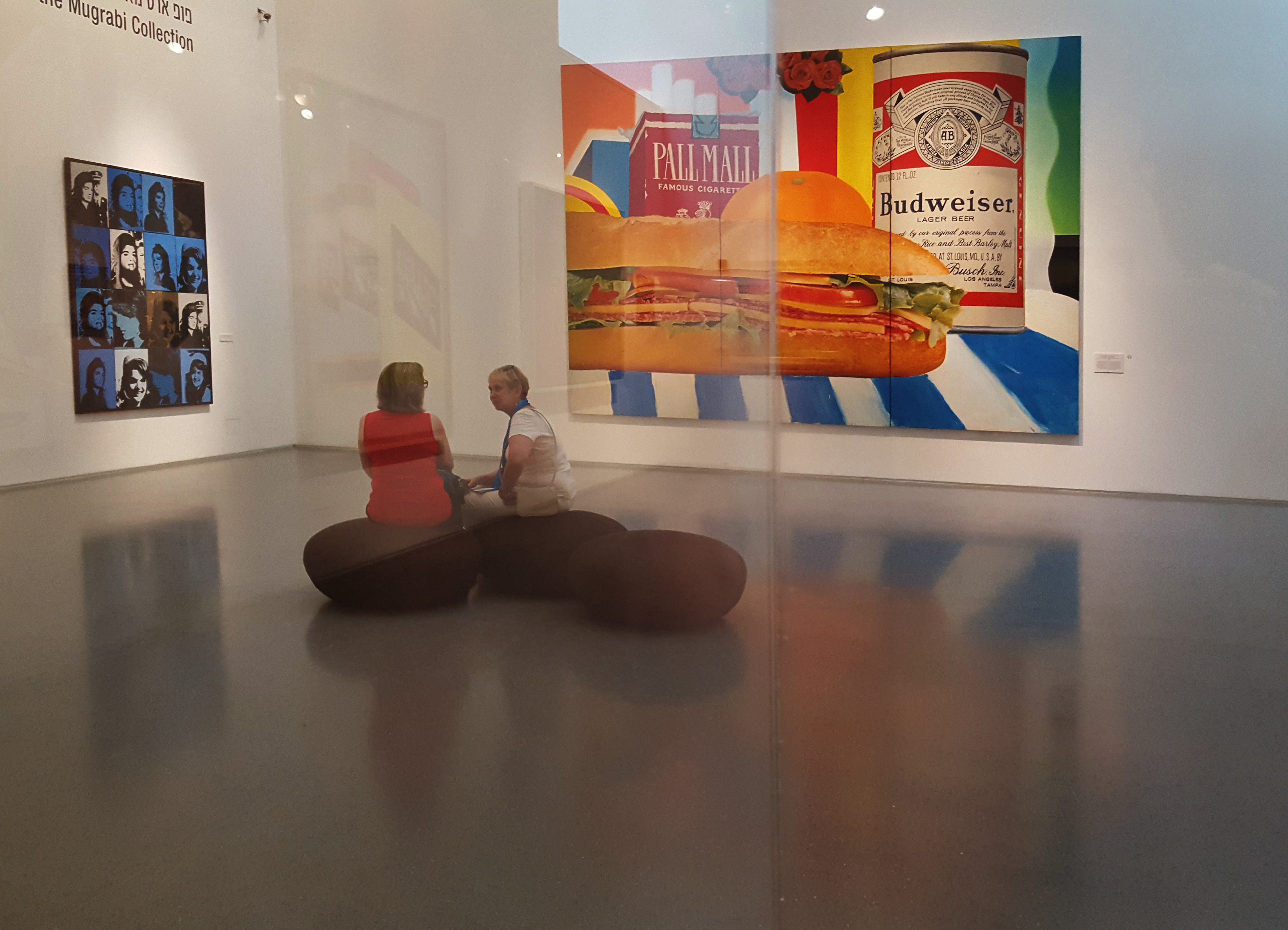
Participatory piece at The Israel Museum in Jerusalem, July 2015
“Every artist in New York has at least three jobs. For years mine was leading group tours of art galleries and museums in the city” says artist Ofri Cnaani. “Through hundreds of tours I developed a sensibility to the way histories are told and information is communicated, and became interested in the guided tour as an art form.”
Frequently Asked is a participatory performance in the Israel Museum’s permanent collection galleries that stems from Cnaani’s interest in the variety of ways in which museum knowledge is being formed, transformed, and spread verbally between educators and their audiences, peers, museum employees, and art professionals. For this performance, Ofri Cnaani worked with 25 of the museum’s volunteer tour-guides or docents in order to create 25 private walk-throughs, which bring to the front not only the art but also the role of the docent as a translator and mediator. Mostly women in later stags of their career, docents are typically not art professionals and while they aren’t museum staff they join as volunteers to become the face of the museum. During Frequently Asked each docent will lead one visitor in a one-on-one tour, offering personal narratives of classic or modern canonical artworks and their spatial manifestations. By guiding docents to narrate objects from the collection from a point of view that splices the docent’s educational experience and personal biography, Cnaani challenges the hierarchy of expertise.
Each selected tour guide took part in a preliminary group workshop and a one-on-one feedback and training session with the artist where they were asked to create their personal map of the collection based on ten non-traditional guideline questions and guidance to prepare their tour based on personal knowledge, experience, memories, and feelings. The result is a personal tour which presents alternative knowledge and new means to access it. The performance thus activates the space between museum education and curatorial practice, and draws from both forms of knowledge.
